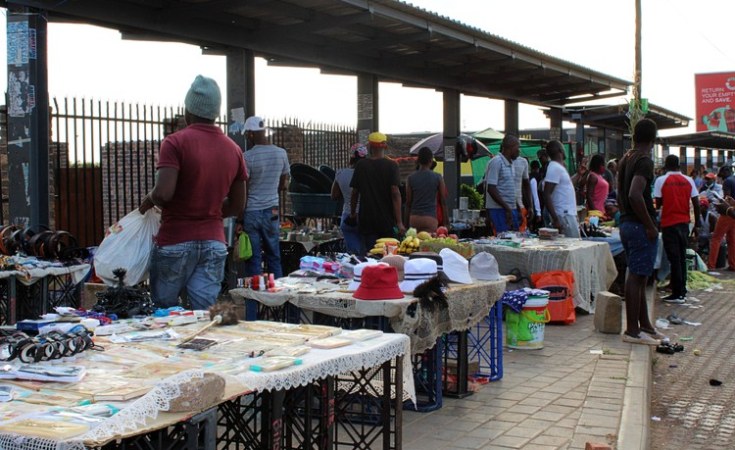Abuja — The African Development Bank is warning that the rising cost of energy, food and other commodities in several African countries, including Angola, Ethiopia and Kenya, could trigger social unrest. Already, people in Africa's most populous country, Nigeria, have been marching to protest the high cost of living, prompting the government to release grain from the national reserves.
The African Development Bank's notice was contained in its biannual Africa Macroeconomic Performance outlook publication released last week.
The bank said in its 2024 forecast that energy and food price increases -- along with a currency depreciation in Angola, Ethiopia, Kenya and Nigeria -- could spark internal conflict, despite Africa showing overall economic growth.
The bank also said conflicts in eastern Europe and the Middle East could trigger supply chain disruptions, exacerbate inflation across the world, and make Africa's situation more precarious.
This, as protests over hunger and the cost of living grow in Nigeria.
Hundreds protest food prices
On Monday, hundreds of people demonstrated in southwestern Oyo state, asking authorities to take steps to bring down the cost of food or resign from office.
Security analyst Senator Iroegbu agrees with the African Development Bank's projections.
"It's obvious for even the blind to see that there will be social unrest because [of] the three basic needs of life, food, shelter and clothing. The most important is feeding," said Iroegbu. "Nobody can survive without food and that is the level Nigerians are heading to, so people are becoming restless. In fact, if one-tenth of what happens in Nigeria happens in another place, there will be serious unrest but the elasticity of that is being tested."
The African Development Bank said Africa has several rapidly growing economies, such as Ivory Coast, Libya, Niger, Rwanda and Senegal.
But the bank said performance varies from country to country depending on economic policies.
Nigerian President Bola Tinubu embarked on bold economic reforms including the scrapping of expensive fuel subsidies and floating of the country's currency, upon taking office last May.
While authorities say the policies are bound to pay off, the immediate shocks are having an impact on the economy.
Last week, Nigeria's inflation hit 29.9% -- its highest mark since mid-1996. In response, authorities ordered the release of 102,00 metric tons of grain, including rice and maize, to lower food prices.
Government 'not sleeping,' says official
On Tuesday, Nigeria's chief of defense staff, Major General Christopher Musa, spoke to journalists in Abuja about the situation.
"The entire world is feeling the heat; it's not only peculiar to Nigeria," said Musa. "We've had a few riots here and there. Why I'm happy is that the government too is not sleeping, it's stepping up to ensuring that they address these challenges. You've seen that grains have been released, measures are being put in place to bring succor all over the country. The issue of dollar and exchange rate, everything is tied to it and that's why we're having these issues."
The African Development Bank says economic growth in Africa is expected to average 3.8% and 4.2% in 2024 and 2025, respectively -- higher than projected global averages in the same period.
But protesters say unless they can afford food and life's basics, they will continue to march in the streets.


